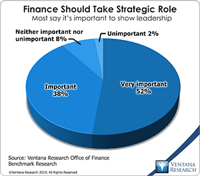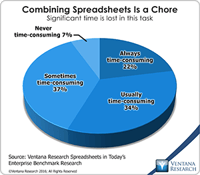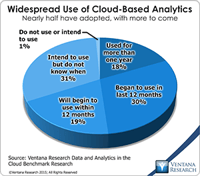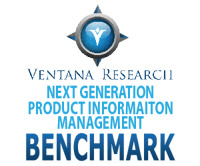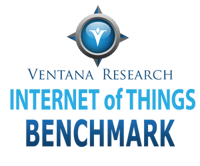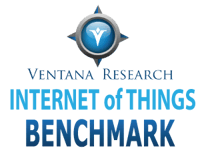Like many other industry observers I’ve heard overblown claims for information technology for decades. However, I’ve also observed that – eventually – reality catches up with vision. Finance and accounting departments are particularly resistant to change, yet because almost no corporations use adding machines or typewriters any more, it’s clear that transformative change can happen. Nonetheless, because users of business computing systems are inundated with “it’s better than ever” promotions by...
Read More
Topics:
Social Media,
Supply Chain Performance,
Human Capital,
Mobile Technology,
Office of Finance,
Operational Performance,
Business Analytics,
Business Collaboration,
Business Intelligence,
Business Performance,
Cloud Computing,
Financial Performance
Ventana Research coined the term “enterprise spreadsheet” in 2004 to describe a variety of software applications that add a desktop spreadsheet’s user interface (usually that of Microsoft Excel) to components that address the issues that arise when desktop spreadsheets are used in repetitive, collaborative enterprise processes. Enterprise spreadsheets are designed to provide the best of both worlds in that they offer the ease of use and flexibility of desktop spreadsheets while overcoming their...
Read More
Topics:
Sales Performance,
Supply Chain Performance,
Office of Finance,
Customer Performance,
Operational Performance,
Analytics,
Business Analytics,
Business Intelligence,
Business Performance,
Customer & Contact Center,
Financial Performance,
Information Management,
Financial Performance Management (FPM)
The blockchain distributed database was invented to create the peer-to-peer digital cash called bitcoin in 2008. Although the future potential of bitcoin and other cryptocurrencies has been debated, the distributed ledger structure using a blockchain database that supports bitcoin is likely to be adopted for a range of commercial and governmental purposes. Distributed ledgers are a secure and transparent way to digitally track the ownership of assets while enabling faster transaction speeds and...
Read More
Topics:
Sales Performance,
Supply Chain Performance,
Customer Performance,
Operational Performance,
Business Performance,
Financial Performance,
Uncategorized,
blockchain, distributed ledger, DLT, ERP, SCM, sup
Cloud-based computing has become widespread, particularly in line-of-business applications from vendors such as Salesforce and SuccessFactors. Our benchmark research also suggests a rise in the acceptance of cloud-based analytics. We’ve seen the emergence and growth of cloud-only analytics vendors such as Domo and GoodData as well as cloud-based delivery by nearly all the on-premises analytics vendors. Almost half (48%) of organizations in our benchmark research on data and analytics in the...
Read More
Topics:
Sales Performance,
Supply Chain Performance,
Human Capital,
Business Intelligence, Business Analytics, Cloud,,
Customer Performance,
Operational Performance,
Business Analytics,
Business Intelligence,
Business Performance,
Cloud Computing,
Financial Performance,
Information Management,
Uncategorized
There were two noteworthy themes in SAP CEO Bill McDermott’s keynote at this year’s Sapphire conference. One was customer assurance; that is, placing greater emphasis on making the implementation of even complex business software more predictable and less of an effort. This theme reflects the maturing of the enterprise applications business as it transitions from producing highly customized software to providing configurable, off-the-rack purchases. Implementing ERP will never be simple, as I...
Read More
Topics:
Predictive Analytics,
Sales Performance,
SAP,
Supply Chain Performance,
Customer Performance,
Business Performance,
Financial Performance,
Uncategorized
It’s widely agreed that customer experience is now the most important dynamic for business. Any organization that wants to retain loyal and even vocal customers should do everything possible to ensure and maintain customer satisfaction. Software companies, especially those that promise to provide CRM and effective interactions across any channel at any time, should be good examples of embracing the methods they prescribe for using their products. But do they?
Read More
Topics:
Sales Performance,
Supply Chain Performance,
Human Capital,
Customer Performance,
Operational Performance,
Business Performance,
Cloud Computing,
Uncategorized,
NetSuite, TribeHR, HCM, HR, HRMS, Customer Experie
Organizations in all industries face various difficulties in managing product information. The most serious is providing complete, engaging information to consumers and customers on the internet. Newly developed products, mergers and acquisitions, changes to pricing and promotions in online commerce spur business growth, but these factors also increase the amount and complexity of product-related data and content. In addition the digital economy offers a new generation of services that are sold...
Read More
Topics:
Big Data,
Sales Performance,
Supply Chain Performance,
PIM, Product Information Management, Sales, Market,
Customer Performance,
Operational Performance,
Business Analytics,
Business Performance,
Cloud Computing,
Financial Performance,
Information Management,
Uncategorized,
Information Optimization
Through a federal rule referred to as “Overtime Rule” and part of Title 29 regulations was issued on May 18th, 2016 by the Department of Labor (DOL), the Obama administration now mandates that unless they meet criteria for exemption, employees paid less than $47,476 ($22.825 per hour) are entitled to overtime pay when they work more than 40 hours per week. The rule change, which goes into effective on December 1, 2016, is intended to apply to executive, administrative and professional...
Read More
Topics:
Sales Performance,
Supply Chain Performance,
Customer Performance,
Operational Performance,
POTUS, Department of Labor, FLSA, Part 541, Overti,
Business Performance,
Financial Performance,
Governance, Risk & Compliance (GRC),
Uncategorized
Organizations are facing a digital transformation, as I have written, that is rapidly changing the applications and services that businesses use to operate and deliver information. This new digital generation addresses the expectations of consumers and business partners for information and service in real time. One example of it is enterprise messaging. Recently I wrote about the shift to this technology and the challenges it poses for organizations that lack sufficient skills. However, new...
Read More
Topics:
Big Data,
Sales Performance,
Social Media,
Supply Chain Performance,
Enterprise messaging, Internet of Things, IoT, mid,
Customer Performance,
Operational Performance,
Business Analytics,
Business Collaboration,
Business Performance,
Cloud Computing,
Customer & Contact Center,
Financial Performance,
Governance, Risk & Compliance (GRC),
Information Management,
Uncategorized
Enterprise messaging is the technology backbone of communications for applications and systems within and between organizations. Both its importance and its complexity are growing as organizations increasingly have to provide real-time responses to business customers and consumers as well as their own business professionals who support them and their internal supply chains. The variety of use cases for enterprise messaging also is growing rapidly, expanding to the Internet of Things (IoT)...
Read More
Topics:
Big Data,
Social Media,
Supply Chain Performance,
Enterprise messaging, Internet of Things, IoT, mid,
Mobile Technology,
Customer Performance,
Operational Performance,
Business Performance,
Cloud Computing,
Governance, Risk & Compliance (GRC),
Information Management,
Operational Intelligence,
Uncategorized,
Information Optimization
